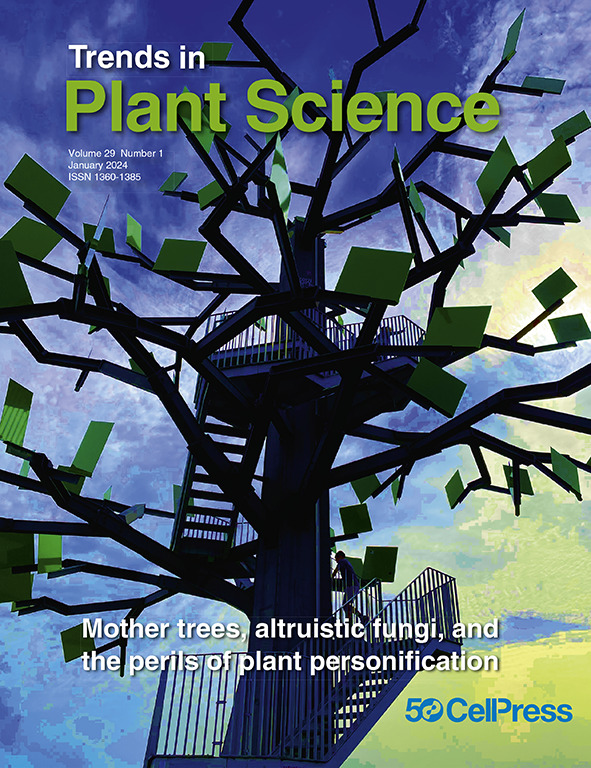叶绿体炼金术:以高精度重写叶绿体基因组。
IF 17.3
1区 生物学
Q1 PLANT SCIENCES
Trends in Plant Science
Pub Date : 2025-04-01
Epub Date: 2025-01-17
DOI:10.1016/j.tplants.2024.12.014
引用次数: 0
摘要
在过去的十年中,精确的基因组编辑已经从理论过渡到实际应用。然而,质体基因组在很大程度上仍然不受这些进步的影响。Mok等人(2024)最近的一项突破表明,通过培育不含转基因的抗阿特拉津的拟南芥(arabidopsis thaliana)植物,成功地进行了质体基因组编辑。本文章由计算机程序翻译,如有差异,请以英文原文为准。
Chloroplast alchemy: rewriting the chloroplast genome with high precision.
In the past decade, precise genome editing has transitioned from theory to practical application. Yet, plastid genomes have largely remained impervious to these advances. A recent breakthrough by Mok et al. (2024) demonstrated successful plastid genome editing by developing transgene-free atrazine-resistant arabidopsis (Arabidopsis thaliana) plants.
求助全文
通过发布文献求助,成功后即可免费获取论文全文。
去求助
来源期刊

Trends in Plant Science
生物-植物科学
CiteScore
31.30
自引率
2.00%
发文量
196
审稿时长
6-12 weeks
期刊介绍:
Trends in Plant Science is the primary monthly review journal in plant science, encompassing a wide range from molecular biology to ecology. It offers concise and accessible reviews and opinions on fundamental plant science topics, providing quick insights into current thinking and developments in plant biology. Geared towards researchers, students, and teachers, the articles are authoritative, authored by both established leaders in the field and emerging talents.
 求助内容:
求助内容: 应助结果提醒方式:
应助结果提醒方式:


